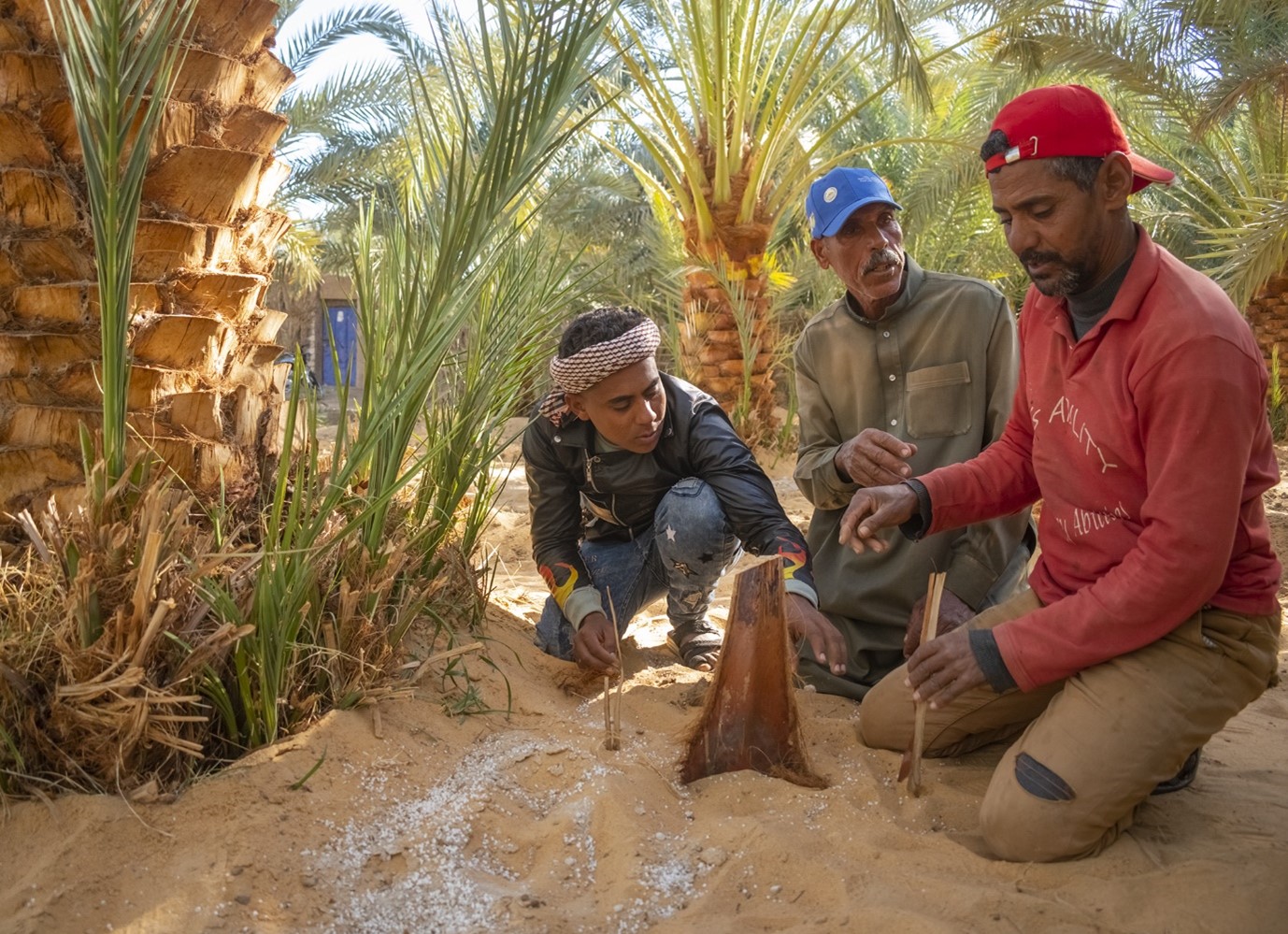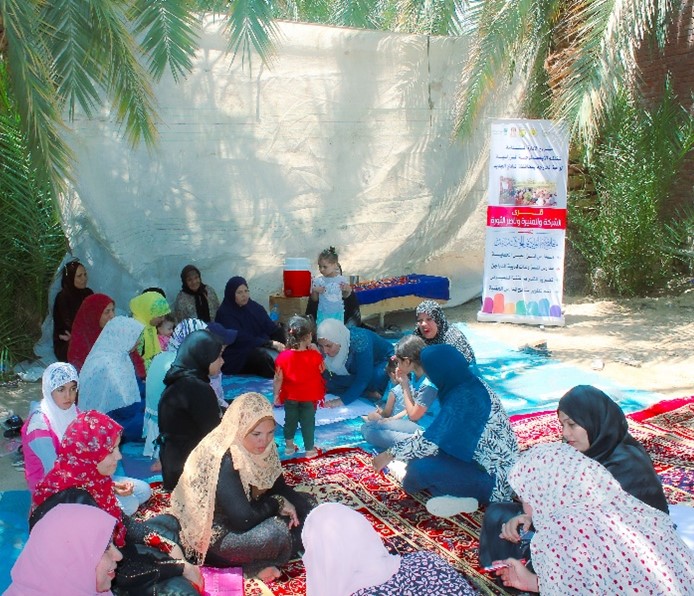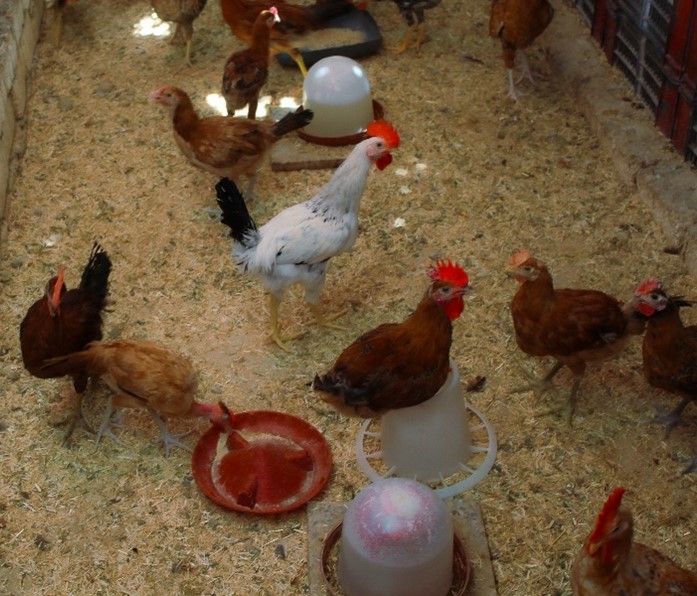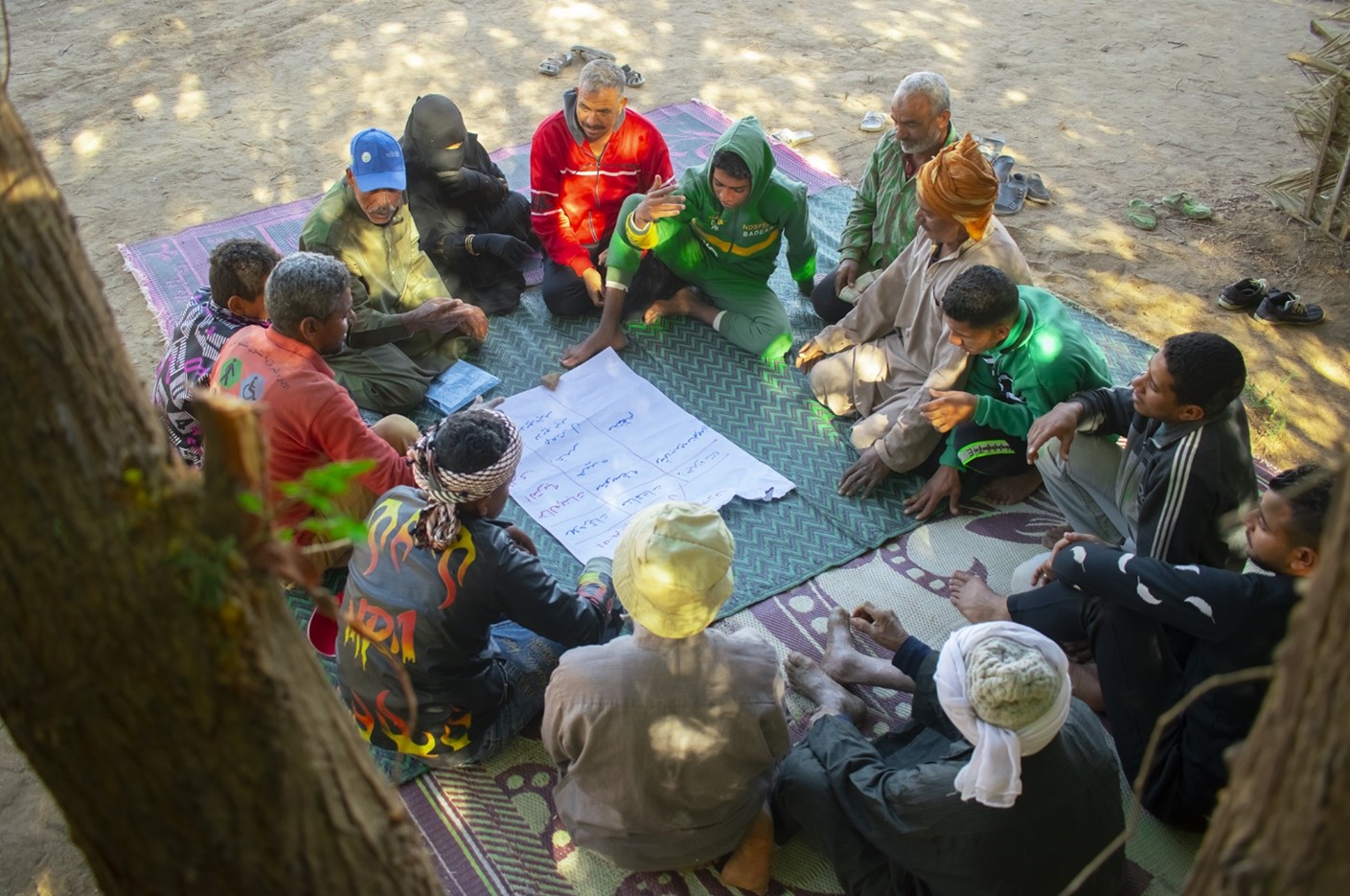
The Sound of Silence: Transforming the Lives of Deaf and Mute Farmers in Egypt’s Desert
Khaled, to the right, explains to fellow farmers the proper way of fertilizing a date palm seedling at one of the FFS sessions.
©FAO/Ahmed Elsheemy
14/10/2024
In the heart of Egypt’s Western Desert, in Kharga Oasis, 700 kilometers from Cairo, a groundbreaking initiative has transformed the lives of local farmers with hearing and speech impairments. The Food and Agriculture Organization of the United Nations (FAO) Egypt, in collaboration with local authorities, launched a project “Sustainable Management of Kharga Oasis agro-ecosystems” in the New Valley Governorate. This initiative, funded by the Global Environment Facility (GEF), aimed to preserve the region's fragile agro-ecosystem. However, it soon became much more than an environmental project – it became a beacon of hope for a group of farmers with determination.
The project team quickly noticed Khaled Mohammed, a farmer who showed great interest in their awareness sessions. They soon discovered that Khaled was deaf and mute, relying on his wife, Nehmedo Abdelhamid, to act as his interpreter. Recognizing both the unique challenges and opportunities faced by Khaled and other farmers like him, FAO decided to establish a Farmer Field School (FFS) specifically designed for the deaf and mute farmers in the area.
Led by Khaled, with the unwavering support of his wife, the FFS focused on improving date palm management, the primary crop in Kharga Oasis. The sessions covered essential agricultural techniques, such as winter maintenance, pruning, pollination, fertilization, and post-harvest operations. Through these hands-on activities, Khaled and his peers not only enhanced their technical skills but also forged strong social bonds, strengthening the social fabric within their community.


Women FFS on poultry rearing ©FAO Egypt
The impact of the Farmer Field School was profound. Khaled, through Nehmedo’s interpretation, explained, "Before the project, I didn’t focus on crucial farming practices like fertilization or composting. Now, I can confidently say I’m an expert in date production." As a result of the FFS, Khaled’s date production increased by 20%, allowing him to sell his produce at higher prices. He divided his earnings to settle debts, invest in charitable work, and provide for his family’s future. This economic boost transformed not only Khaled’s livelihood but also the economic landscape for other farmers with disabilities in the region.
The project’s socioeconomic expert, Ahmed Diab, highlighted the broader significance: "This Farmer Field School has not only improved agricultural productivity but has empowered a group of individuals often left behind. It bolsters their self-assurance and underscores their significance within the agricultural community. By granting farmers with special needs access to cutting-edge tools and technologies, they are better equipped to actively engage in development endeavors and leverage their unique expertise in date palm production. This integration not only benefits the individual farmers but also fortifies the agricultural community as a whole by acknowledging the invaluable contributions of all its members. Ultimately, this FFS fosters a more inclusive and supportive environment for farmers with special needs, empowering them to realize their full potential and excel in their chosen vocation”. With the new climate-smart water techniques, three villages of the project were able to save 10-30% of the original water usage based on the cultivated crop and the irrigation system used. This is a model for the future of sustainable and inclusive agrifood systems."
Beyond the economic benefits, the project also uplifted Khaled’s entire family. Recognizing Nehmedo’s vital role as a communicator, the project gave her the opportunity to lead a second Farmer Field School focused on poultry farming. To support this initiative, the project provided the FFS with 110 locally sourced, fully vaccinated chicks, along with the necessary feed and equipment for raising them. The FFS enabled not only Nehmedo, but all 25 female members to adopt a new sustainable income source through egg and met production.

Deaf and mute FFS members discussing the results of their environmental analysis. ©FAO/Ahmed Elsheemy
The success didn’t stop there. The project also supported Khaled and Nehmedo’s four children, all but one of whom are deaf and mute. The family began producing cover cases used to cover the clusters that bear fruit to shield them from bad weather, fungal infections, and insect infestations, with the help of a sewing machine provided by the project. This small business contributed to the local economy and demonstrated how inclusive agricultural practices can transform lives.
This Farmer Field School for the deaf and mute isn’t just a local success – it’s a global milestone. In a world where inclusivity remains a challenge, this pioneering initiative marks the first time in Egypt's Western Desert that farmers with disabilities have received tailored support to improve their agricultural skills. The success of this initiative has created a blueprint for expanding support to other marginalized communities across Egypt and beyond.
Recently, this groundbreaking Farmer Field School received international recognition from FAO’s Innovation Award on "Celebrating Local Innovations: Innovation Award on Farmer Field Schools for sustainable agrifood systems." Khaled and Nehmedo’s journey will be showcased at the Science and Innovation Forum in Rome, a testament to the power of innovation and inclusion in agriculture.
